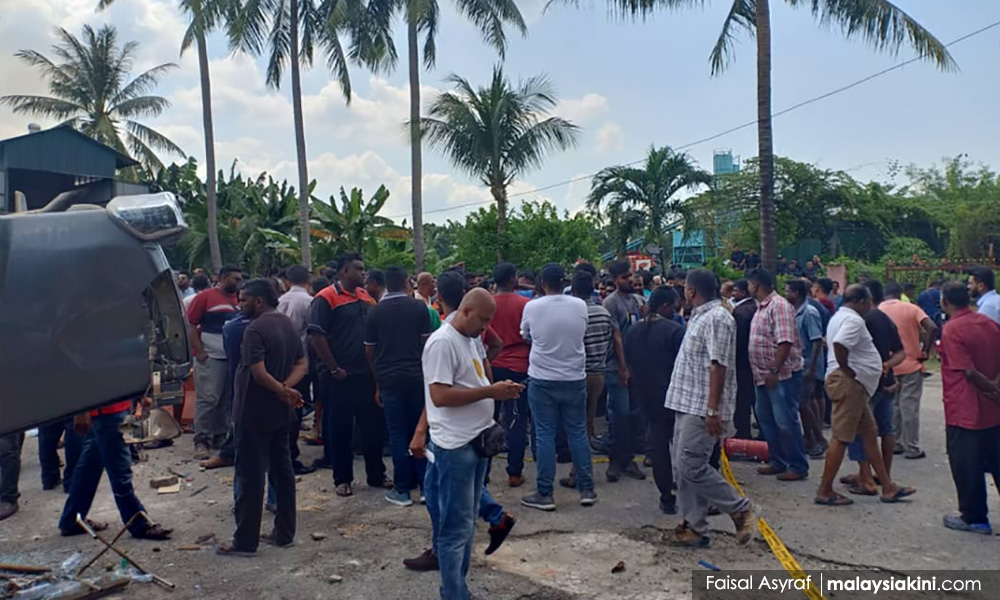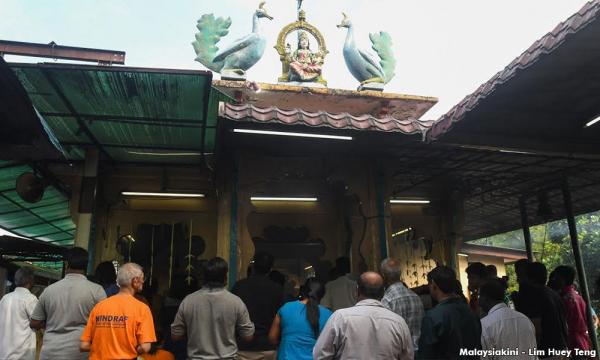ADUN SPEAKS | Could we have avoided the Seafield Hindu temple incident that took place in late November 2018?
The incident not only furthered inter-racial and inter-religious tensions but caused the unfortunate death of firefighter Muhammed Adib Mohd Kassim.
While we wait for the outcome of the police investigation on the rioting and the circumstances that contributed to the death of Adib, there are serious questions that we need to ponder, as to how to prevent the Seafield type of incidents from rearing their ugly heads in the future.
I believe there are many scenarios in which the temple incident could have been prevented in the first place.
First, if the temple had been given land as promised during the BN time, there was no necessity for the temple to be moved elsewhere.
Second, if the two factions of the temple committee had not fought over control, the matter would not have gone to the court for adjudication. Due to internal schism, the matter had to be referred to the court and it ultimately gave its decision in favour of one faction.
Third, the landowner, One City, could have given the existing land to the temple and let the parties decide who would actually manage the temple.
However, the owner insisted the temple should be moved to another site with a promise of compensation.
Fourth, if the parties to the court’s consent judgment adhered to the moving of the temple the whole fracas could have been avoided. But unfortunately, one of the factions refused to move the temple as per the consent judgment leading to a stalemate, or standoff between the owner and devotees who had gathered to prevent the possible demolition of the temple.

Fifth, as things developed, matters became much more complicated and tense. Some members of opposition parties gathered in the temple ground to ridicule the inability of the Pakatan Harapan government to save the temple.
Sixth, the owner of the land allegedly did a stupid thing: hired thugs were sent to the temple for demolition resulting in rioting and torching of a number of vehicles. Some time elapsed before the police took a serious view of the situation to bring it under control.
And finally, if Selangor had a Hindu statutory body like the Penang Hindu Endowments Board (PHEB), the matter could have been dealt with amicably. This is why there might not be Seafield-like temple incidents in Penang.
If an incident like Seafield took place in Penang, the PHEB could have invoked Section 4 of the Hindu Endowments Ordinance 1906 to bring the temple under its management.
Since 2008, two temples in Penang that had serious internal rifts were brought under the PHEB. So much so that if there are some major problems in Hindu temples in Penang, the Registrar of Societies (RoS) often refers to PHEB for a speedy resolution as it is fully equipped to manage Hindu temples under troublesome committees - something that the Malaysian Hindu Sangam is incapable of doing.
The Harapan manifesto, among other things, calls for the establishment of Hindu Endowments Board (HEB) in states with a sizeable Hindu population.
I believe if the HEB is set up in other states, it can contribute to a large extent in resolving temple matters.
HEB must be a statutory body, and not something run by individuals from NGOs. As a statutory body, the HEB must be led by elected representatives, especially those having administrative positions in the state or federal government.
Since 2008, the Penang state government has resolved various matters related to Hindu temples by empowering the PHEB. This is the main reason why in Penang there are no attempts at the demolition of temples, as the PHEB steps in to resolve matters of worship, land and relocation of temples.
The Seafield temple incident highlights the sensitive nature of religious worship in the country. It further highlights the complete lack of institutional mechanisms in resolving the issue of location of temples.
It is about time we moved in the direction of establishing HEB in the country by looking at the required legal mechanisms both at the federal and state levels.
P RAMASAMY is Perai assemblyperson.
The views expressed here are those of the author/contributor and do not necessarily represent the views of Malaysiakini.


